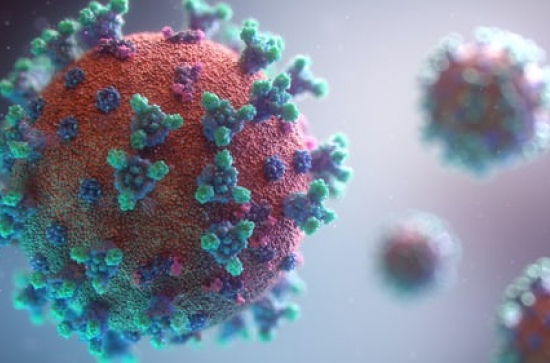
The Coronavirus Unveiled: Seeing the Unseen through Computational Microscopy
Thursday 13th January | 10am | Zoom (online)
Dr Elisa Fadda
Department of Chemistry and Hamilton Institute, Maynooth University
For second level biology and chemistry teachers and students
Complex carbohydrates are the most abundant biomolecules in Nature and yet the most mysterious, appropriately referred to as “the black matter of biology”.
Broadly known to the public for their role as nutrients (e.g. starch) and as the major constituents of plant cell walls (e.g. cellulose), carbohydrates (also known as glycans) play fundamental roles in the biology of human health and disease, covering our own cells as a ‘fur’, mediating virtually all interactions between the cell and its environment, and functioning as the first port of entry for viral, bacterial and toxin infection. Enveloped viruses, such as coronaviruses, have evolved to use glycans from the host to cloak themselves, as an effective strategy to evade immune recognition and response. Yet, the study of how carbohydrates perform all these fundamental tasks is extremely difficult because their chemical nature and biological origin makes them invisible through most experimental methods.
In this talk I will present how in my lab we use high-performance computing (HPC) molecular simulations to study carbohydrates and to advance our knowledge and understanding on the many roles that they play in SARS-CoV-2 infection. More specifically, I will focus on how we have recently identified a unique functional role of the glycan shield in the activation of the spike protein1 and how viral evolution has optimized the invisible carbohydrate cloak (or glycan shield) to enhance infection2.
Biology and Chemistry teachers can register their class The Coronavirus Unveiled: Seeing the Unseen through Computational Microscopy | 13 January | | Maynooth University (geckoform.com) https://app.geckoform.com/public/#/modern/FOEU025b2Qlu4438
About Dr Fadda:
1999 Laurea in Chemistry at the Università degli Studi di Cagliari, Italy
1999-2004 PhD in Chemistry at the Université de Montréal, in Prof Dennis R. Salahub’s group on ab initio QM methods for the prediction of NMR shieldings
2004-2008 Postdoc in Dr Régis Pomès’s group at the Hospital for Sick Children in Toronto, on biomolecular simulations of translocation through ion channels
2008-2013 Research Fellow in Prof Robert J. Woods’s group at the National University of Ireland, Galway on the simulation of glycoproteins and glycan-processing enzymes
2013-Present Associate Professor in the Department of Chemistry and Hamilton Institute at Maynooth University
1. Casalino, L.; Gaieb, Z.; Goldsmith J.; Hjorth C.; Dommer, A.; Harbison, A.; Fogarty, C.; Barros, E.; Taylor, B.; McLellan J.; Fadda, E.; Amaro, R., ACS Central Sci (2020).
2. Harbison, A.; Fogarty, C.; Phung, T.; Satheesan, A.; Schulz, B.; Fadda E., bioRxiv (2021)
